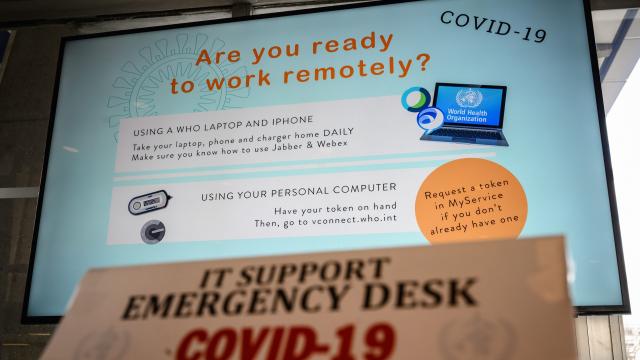A team of technologists based in London has mobilised to amass a crowdsourced document calling itself the Coronavirus Handbook, a massive collection of resources related to COVID-19 and covering everything from remote working and public advice to datasets and statistics related to the outbreak.
The Coronavirus Handbook is an effort spearheaded by Edward Saperia, dean of Newspeak House, the London College of Political Technologists. Newspeak House bills the handbook as the “ultimate collection of tools, websites and data relating to the coronavirus outbreak,” amassing data and information relevant to technologists undertaking projects in response to the novel virus—for which more than 118,000 cases and 4,292 deaths have been confirmed, according the World Health Organisation—as well as the larger tech and epidemiology communities.
The document is also an exhaustive resource for things like preparedness and prevention; links to situation reports; remote working tips and resources (including some very helpful meeting and conferencing tools); calls for help on open-source projects; as well as efforts around curbing misinformation about the novel coronavirus outbreak, such as by keeping Wikipedia pages free of conspiracy theories and misinformation.
The response has been swift. Roughly a hundred people were in the remote working document at the time of this writing, with dozens more in other documents linked to from the handbook’s landing page. According to Simple Analytics data shared with Gizmodo, the handbook has amassed tens of thousands of views in the short time it’s been up. (Saperia said his team had the idea for the handbook early last week and started promoting it toward the week’s end.)
Saperia said it’s unclear how many people have contributed to it so far, as it’s anonymous, but he said he “would guess around a hundred people have made meaningful contributions so far.”
Newspeak House notes on the handbook’s landing page that it has “dropped everything” to work on the handbook. When asked why and what that entails, Saperia said it’s twofold: “designing a space where it’s easy for people to make contributions, and promoting the handbook in communities that are likely to have things to contribute.”
“It’s not as simple as creating a space and sharing it, sadly! I have spent the past 10 years doing community strategy,” Saperia said. “For this project, it’s taken a team of four of us about a week to get this far.”
As for crowdsourcing information, the handbook makes clear in a large-text disclaimer on its homepage that documents may contain medical information or treatment-related information and that it is “not [verified] advice, and should not be treated as such.” It further makes clear that readers should use it “and re-use it at your own risk.” Saperia told Gizmodo that the team encourages people to be critical of the resources they find in the handbook. He noted that many items included in the book “are official or eminent sources,” but added that even official sources can be wrong. The key is helping people find the best information possible.
“The thing I ask myself is, if people weren’t finding resources through our handbook, where would they find them instead, and would those sources be better?” he said. “Since we strive to be as comprehensive as possible, that seems unlikely, as people will likely have more sources to compare.”
